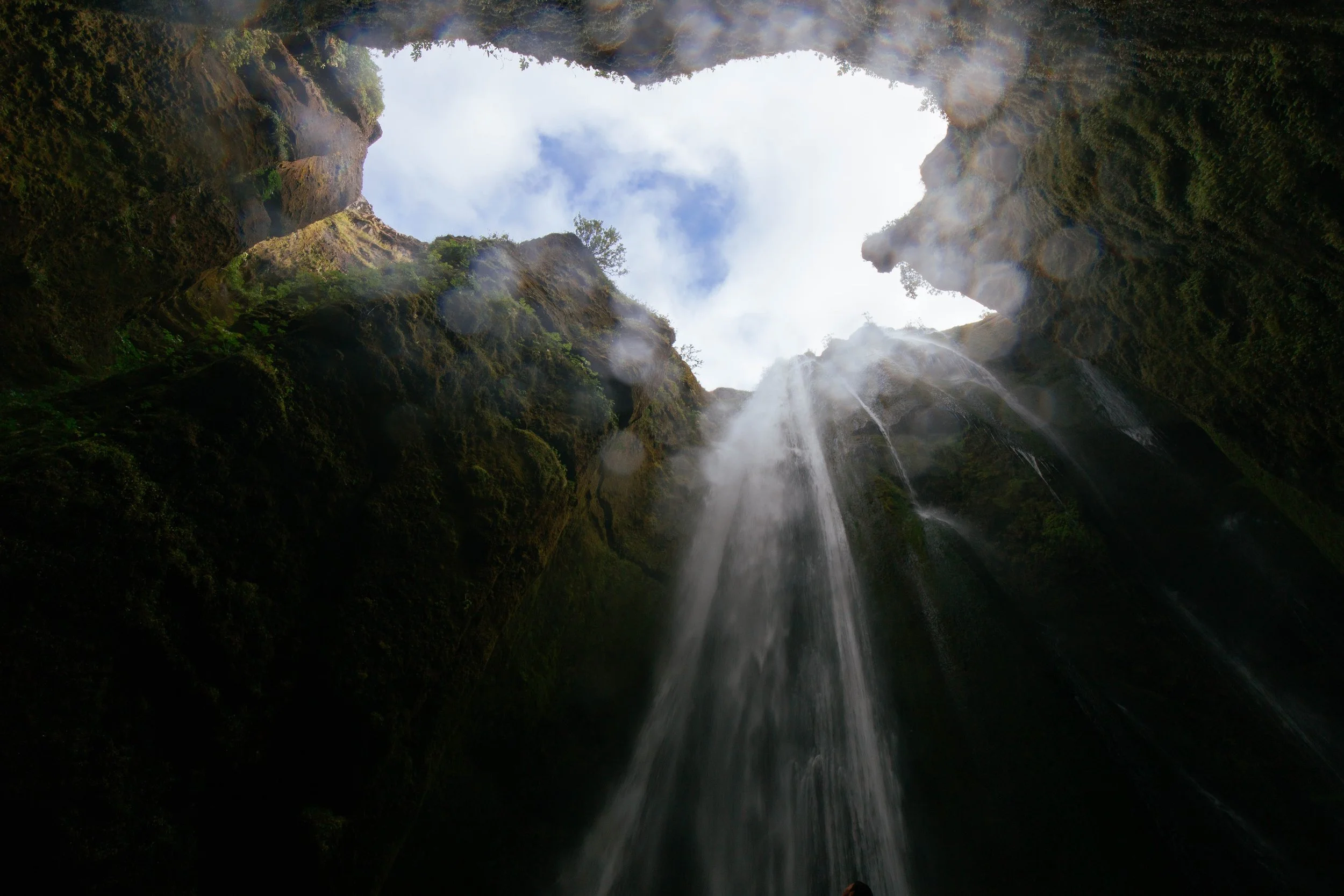What is an experience? Ordinary vs. the extraordinary
Experiences and life
Experiences play out inside on the screen of the mind reflecting life outside. We are continually searching for new and novel experiences. To every experience we assign a value, quickly forgetting those we consider insignificant. For those we find valuable, we accord a special place in the mind and memory. To generate an experience, there is a complex interplay between memory, senses, emotion, intellect, ego, conditioning, and consciousness. Some experiences may have a predominance of one or more of these influences. For example, emotions may be the primary defining factor of one experience. Another experience may be purely intellectual. Life is an aggregate of all our experiences, big or small. We cannot separate life from experience and experience from life.
We cannot separate life from experience and experience from life.
To experience anything, we need to create space in the mind. Along with this, the context of time is also essential. Time creates the possibility of a journey, taking the mind from where it is in the present, to a place we wish to go. We carve out the destination in the mind space, calling it the future.
It is rare for us to engross ourselves in the experience of the present so thoroughly that we become one with that experience. Typically, we quickly sample experiences as they filter through the mind. We then put them aside along with labels indicating whether they are desirable or undesirable. The mind is full of such samplings of ‘partial experiences.’ We maintain an insatiable desire for more without enjoying what is already in our possession. This is true not just of experiences but also for physical objects we call our own.
It is rare for us to engross ourselves in the experience of the present so thoroughly that we become one with that experience. Typically, we quickly sample experiences as they filter through the mind.
Experiences have their place. Without them, life would be incredibly dull and boring. We need not alter any of our experiences to go beyond them. The experiencer is not found in the experience. Every experience ultimately disappears from our conscious mind, but the observer of that experience remains.
We tie our happiness to a set of experiences that may or may not happen again in the manner we desire. However, finding the observer of all experiences may open up a treasure chest full of joy. There is no shortage of experiences in life, but there seems to be a scarcity of joy in our lives. This suggests that more experiences are not the answer to the happiness we seek.
There is no shortage of experiences in life, but there seems to be a scarcity of joy in our lives.
Experiences and the senses
We experience the world through the mind and the senses. Everything we know of this world is a result of inputs coming in through one of the sensory portals. The vast majority of our experiences are visual. The mind carries subtle correlates of the physical senses which it uses to recreate prior experiences.
The mind carries subtle correlates of the physical senses which it uses to recreate prior experiences.
The mind, in real-time, recreates outer manifestations that the senses pick up. They come to us as inner projections. Some experiences, such as a beautiful sunrise or a sunset, are purely visual. We cannot hear, touch, taste, or smell a sunrise. We cannot see the wind, but we can feel it when a breeze blows. We can see water, feel, and hear its flow.
Depending on the experience, the mind is adept at amplifying the capacity of the corresponding sensory organ(s) which carry the most information. This selective sensory feed is an automatic process, and the information from the other senses adds to the background creating a vibrant and granular experience. It is a wonder and a miracle that such a complicated process happens without any effort on our part.
The world of sensory experiences we so take for granted is fascinating. The ability to understand, interact, and derive happiness from the world depends on the mind’s ability to process every experience, which then projects onto the screen of the mind.
Many experiences are happening concurrently. Our attention cannot be on all of them at the same time. However, the memory stores them, and if we can deeply attune our awareness and attention to our memory, it may be possible to recreate prior experiences at will.
Experiences are not just for enjoyment. They also serve as teaching tools. Every experience is unique, and we can derive something from them. If there is one barometer of assessing our inner growth in real-time, it is our reaction to our experiences.
If there is one barometer of assessing our inner growth in real-time, it is our reaction to our experiences.
Some experiences seem so powerful and positive that we forget ourselves. Others seem so negative that we attempt to create a great distance between us and the experience. No matter how positive or negative an experience appears, all experiences are transitory. Our reactions to experiences reflect the degree to which we understand their ephemeral nature.
No matter how positive or negative an experience appears, all experiences are transitory.
Time and experiences go hand in hand. We cannot hold onto time, but through attachment, we hold onto specific experiences. Through such attachments, we bolster the past. When the mind is in the past, the body cannot follow. The body carries the physical senses, and they continue to function and bring in sensory information even as our attention swims in the past. This creates conflict within, and this is the birth of restlessness in both the body and the mind.
Our attention shifts back and forth between stored experiences and what is currently happening in front of us. The subtle inner senses that are part of the mind primarily engage with the past trying to recreate experiences for us. The physical senses always engage with the present. If the present is more attractive than the past projections currently playing in the mind, our attention shifts to what the physical senses are showing us. Conversely, if the past is more interesting, we forget the present and begin to dwell in those projections.
Our attention shifts back and forth between stored experiences and what is currently happening in front of us.
There are many such past experiences we recall every day. This happens amid all the experiences we encounter in real-time. Rather than shift back and forth between the two, hence ensuring complete involvement in one of the other, there is a compromise that the mind strikes.
Each experience, past or present forms a lens and the mind blends them all. Hence the uniqueness of each individual’s perspective of any given situation. The layering of the past, thin or dense, determines our perspective.
Let’s suppose we are cooking a meal. While this activity engages the body and the senses, the thought of a meal that may be in our prior experience makes the mind drift away from the present. The thought of hunger may suddenly appear, and this thought takes a portion of our attentiveness. Imagining the taste of the food we are cooking will consume yet another part of our energy of attention. Each of these thoughts functions as lenses stacked on one top of another. With every new thought related to the dominant experience in the mind, we add a new lens.
The composite of past thoughts plus the input from the senses which relate to the present creates yet another mental picture. In the future, when we attempt to recall this composite experience, the mind works to put these ‘lenses’ back in a similar order, thereby linking all related thoughts. This requires tremendous computing power, and the mind is more than equal to the task. The question to be asked is if this is the best use of the mind’s potential and power. Is life only about enjoying experiences, or is there more?
Is life only about enjoying experiences, or is there more?
Ordinary and extraordinary experiences
We quickly lose fascination with everyday life experiences. We forget the intricate mechanisms behind the enjoyment or recreation of any experience in the mind. Our focus is more on the contents of our experiences. Therefore we seek extraordinary ones. Whether we consider any experience as ordinary or extraordinary, the interface which is the mind remains the same.
Whether we consider any experience as ordinary or extraordinary, the interface which is the mind remains the same.
An extraordinary experience is like a rare painting. If such a work of art were lost somewhere and is not known to the world, practically speaking, it would not carry any value. However, if one person owns it and the rest of the world wants it, its value skyrockets. It becomes a sought after object.
We hear of experiences, and this creates a desire to enjoy them ourselves. The rarer we judge them to be, the more value it gains in our estimation. The ego gains great satisfaction not just in the experience but also in proclaiming to the world, “I had an experience which everyone seeks.”
No two experiences are the same. Trying to experience what another says is in their experience is like wanting to own the painting in the example above. We begin to define our inner worth, our progress in the material world and the spiritual world on the enjoyment of specific experiences. This is a very shaky foundation for internal growth. It can crumble at any time.
Sought after experiences which we are told are milestones in the journey towards the ‘ultimate experience’ feeds the engine of desire. Such an ‘ultimate experience’ will also be transitory. Change is the only reality of any experience. When it returns through recall, there is further modification. Forgotten in this chase for extraordinary experiences is the changeless observer.
Change is the only reality of any experience. Forgotten in the chase for extraordinary experiences is the changeless observer.
Experiences and the observer
All experiences are observable phenomena. Experiences come and go. The observer remains unchanged and is always present, perceiving the space in which the temporal nature of experiences play out. Remembrance of being the observer is a significant step forward in our inner evolution.
All experiences are observable phenomena. Remembrance of being the observer is a significant step forward in our inner evolution.
We forget the observer when there is interaction with an experience. Remembrance returns when becoming a witness to the space in which experiences come and go. The false self or the “I” interacts with experiences as if a participant. The power of the “I” peaks at the height of experience and fades as the experience disappears. It feels like part of us has vanished with the experience, and that part reemerges whenever the experience comes back from memory.
On the other hand, the true self or the witness of the changing phenomena of experience does not directly interact with the experience. As the experience appears, peaks and then fades, if we remain a witness, that witnessing space encompasses both the experience and the observer. The experience and the observer are not separate. The ego creates a false separation between the observer and the experience.
The true self or the witness of the changing phenomena of experience does not directly interact with the experience.
We see clouds in the sky as separate from the sky. The clouds change as they come and go, and ultimately, only the sky remains. No matter where we are in the world, we see the same sky.
The awareness as the observer is the same in everyone. Similarly, the more we observe and witness without any interaction with, or trying to modify or imagine an experience, the higher the likelihood of awareness becoming that of the observer.
The awareness as the observer is the same in everyone.
Going beyond experiences
Only through awareness as the observer can we go beyond experiences. That state of awareness is like a cloudless sky of endless depth. On the same sky, we see birds flying, airplanes leaving contrails, clouds forming, stars appearing, the moon waxing and waning, the sun rising and setting. But none of these leave a lasting mark. The moment they disappear, their traces also vanish. Such a sky lies in plain sight in everyone’s outer perception. When we extend it inside and see the mind in its entirety, including all its stored experiences as transitory clouds, we ultimately become the changeless sky of pure awareness.







